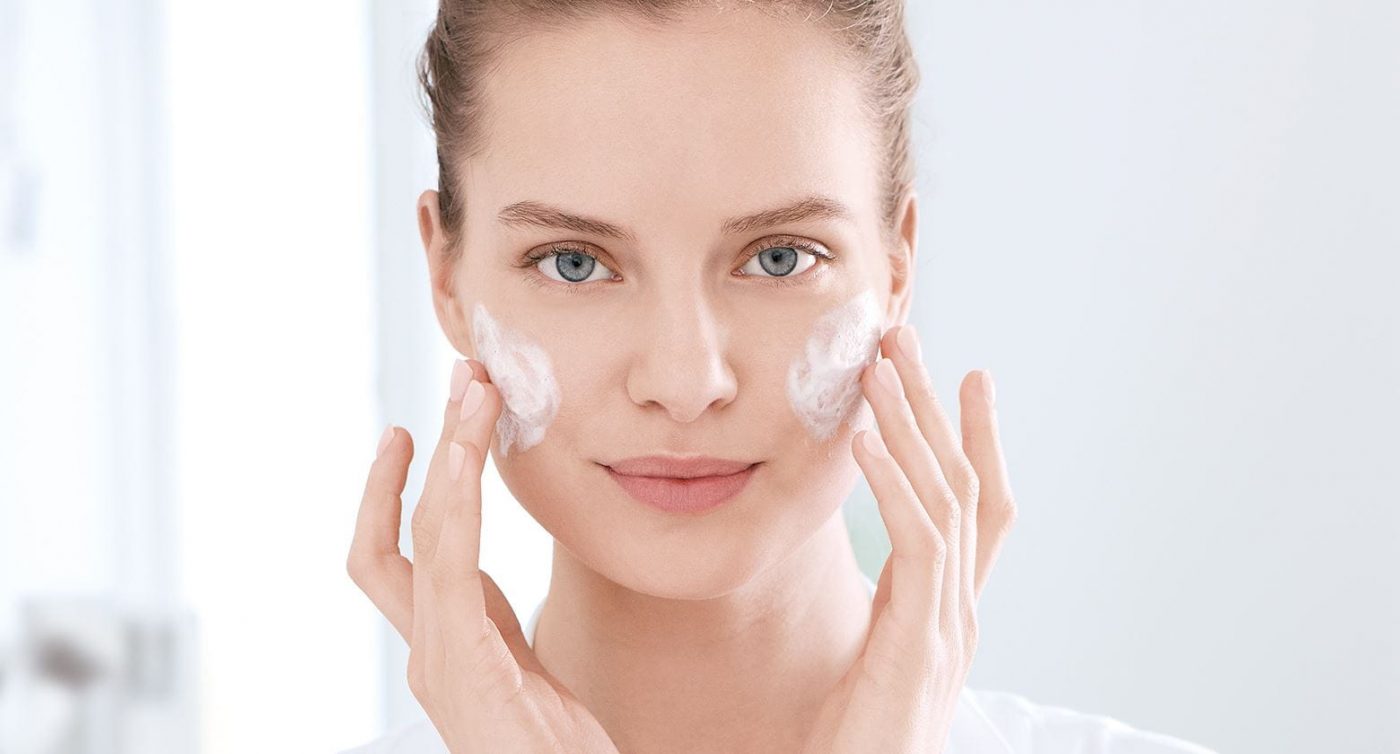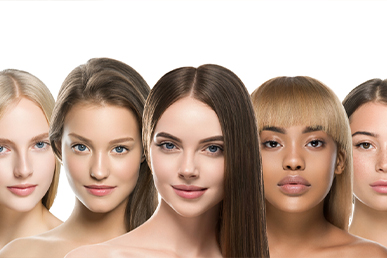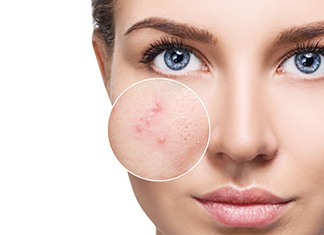Skincare
Reasons why Probiotic Skin Care Is Worth The Hype
All about Probiotics In Skincare – What Are They And How Do They Work?
Are you a strong believer that yogurt a day keeps the gut issues at bay?
You’ll be astounded to learn that the same microbe-friendly concept is transforming the skincare industry. Hundreds of billions of microorganisms live in our bodies, outnumbering even human cells. And a large number of these diverse bacteria ecosystems (roughly 1,000 species) remain on our skin.
Many studies indicate that some of these microbes promote skin health extensively. They help to strengthen our skin’s natural defense sensitized against bacteria while still balancing the pH levels. Isn’t it intriguing?
So, I’ve had enough of waiting! Are you one of them? It’s past time to add helpful bacteria to our skincare and cosmetics arsenal. From masks and mists to serums and cleansers, there’s a lot to choose from. It will also ensure that inflammation is reduced, the skin’s barrier is strengthened, and acne is reduced. Doesn’t it sound intriguing? Incorporating probiotics into your ever-expanding skin regimen is well worth it. With the jam-packed stressful and hectic lifestyles that we lead, opting for more than 1 method to get that flawless sheen is the only option we are left with. So if you crave that magical skin, prepare your skin to become friends with some good bacteria. Before that, here’s all you need to know…
First things first, what are probiotics?
Probiotics = good bacteria?
Probiotics are microorganisms that are similar to the naturally occurring bacteria present in our gut. They aid in a variety of health functions, including digestion, serotonin production, and infection resistance. The more healthy bacteria we have in our bodies, the less likely the poor bacteria can take over and cause serious problems. The dictionary definition of probiotics is ‘micro-organisms that can benefit their host’, but I just like to call them ‘good bacteria!’
What is Probiotic skincare?
Probiotics work similarly for our skin as they do for the digestive system. Like I mentioned before, they aid in balancing the pH level, deal with bacteria that are a reason for the inflammation, and permit healthy bacteria to grow on the skin. It gives that natural, long-lasting glow, and appeal. In addition to that, probiotic beauty products also help in combating flare-ups, acne, breakouts, unknown spots on the face, as well as dullness.
And what’s the deal with prebiotics and postbiotics?
To explain in simple words, Prebiotics are non-digestible compounds that support the vitality of the good bacteria in our body. They can be found in things like-
- Whole grains
- Bananas
- Greens
- Onions
- Garlic
- Soybeans
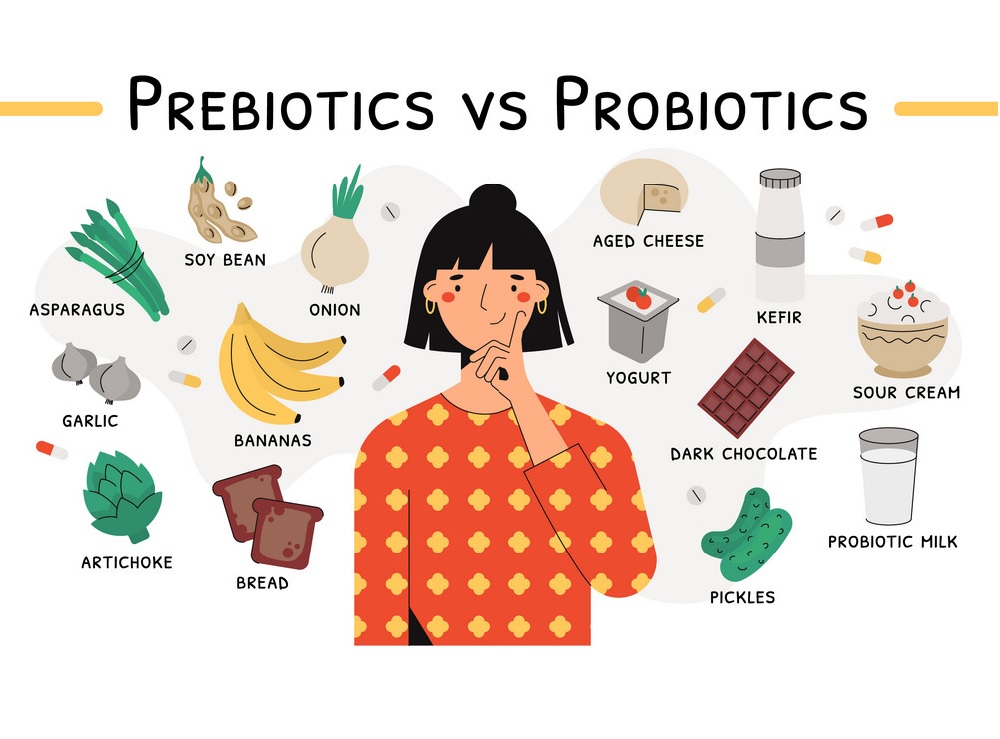
Since we don’t digest them, they go straight to our intestines, where they’re devoured by beneficial bacteria. Prebiotics are used in many topical probiotic products. They encourage the growth of beneficial bugs that live on our skin. Probiotics contain good bacteria, while prebiotics contains the nutrients that the good bacteria need to survive and reproduce. These postbiotics — enzymes, organic acids, polysaccharides, peptides — are super powerful molecules that further reinforce our skin’s healthy barrier.
The probiotic benefits for each skin type
We all are aware that there are millions of options and choices available in the market today when it comes to skincare products. Whether vegan or Ayurvedic products, we have a plethora of options that only leave us confused and unsure of which product will be best for our skin type. It must be clear to you by now that while the debate around rose quartz and vegan products continues, one thing that’s going to take over the beauty industry this year is all about probiotic skincare.
Stabilizing the microbiome helps:
- Protect the skin’s surface from environmental aggressors.
- Improve your skin’s ability to become and stay hydrated.
- Reduce the factors that cause reddened, sensitized skin.
- Improve the appearance of symptoms of dryness, such as a close, unpleasant feeling.
- Restore the skin’s pH balance to a stable level.
There are a variety of probiotic-infused beauty products on the market today, ranging from face mists and cleansers to serums and moisturizers. Women are, without a doubt, intelligent creatures. But here we are, to add a little more to your information bank. Only so you can figure out how probiotics can help you with your particular skin issues.
Probiotic skincare for sensitive skin

Probiotics have the unusual ability to regenerate and strengthen the skin’s barrier. Sensitive skin can take a long time to heal after being damaged. Making probiotics an unavoidable part of your skincare routine, on the other hand, will hasten the method.
If you want stronger, more healthy skin, a probiotic-powered skincare routine might be worth investing in.
Probiotic skincare for polluted skin
Pollution and other free radicals can hasten the aging process and deplete the skin’s natural radiance. Probiotics can help the skin’s natural defenses against these aggressors when applied topically. They allow you to quickly transition from polluted to beautiful skin!
By restoring balance and stimulating the skin’s natural defense mechanism, probiotics ensure that the skin is ready to battle the elements on a regular basis. To put it another way, a dose of topical probiotics will help to relax the immune response that pollutants and stress cause, preventing damage to collagen, elastin, and healthy cells. Consider them a barrier against environmental aggressors and anything else we slather on our skin on a regular basis.
Probiotic skincare for acne
Acne is dreadful! Tbh, I petrify them. So I keep a check on almost everything to avoid them, but they still don’t leave me alone. If you are like me then incorporating probiotics skincare for acne can be our thing for sure. Research and studies have found that products containing lactobacillus (a type of bacteria usually found in yogurt) are effective in treating acne. I feel it is something that will entirely change the way we tackle the common skin problem in the future.
I think that acne won’t be treated with antibiotics in a coming couple of years but with probiotics! Feeding the good guys and starving the bad trouble makers (in this case, the acne bacteria) makes so much sense to me..haha.
By calming and balancing the skin’s inflammatory response, probiotics can also help to soothe acne-prone skin from within. The key to dealing with acne skin is to treat it smoothly with love and with kind formulations that don’t strip away all the skin’s natural oils.
For anti-aging benefits
Probiotics-powered skincare products are very effective in minimizing the appearance of age spots, fine lines, and other signs of aging by repairing stressed skin and stimulating skin renewal leaving your skin youthful, radiant, and glowy-Dowey.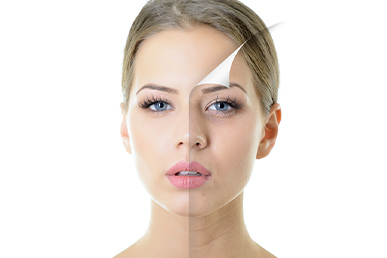
Pro tip: For the best results, look for ingredients like Lactobacillus, Bifidobacterium, Vitreoscilla, and prebiotic sugars like xylitol when purchasing probiotic-rich skincare. Also, keep in mind that probiotic skincare is extremely delicate.
KEEP IN MIND:
- Probiotic products have a very low shelf life.
- Avoid probiotic products in loose packaging.
- Don’t buy something that has been exposed to the sun.
- Expert guidance is often beneficial. So make an appointment with your dermatologist to learn more about your skin’s needs and the types of probiotics that will work best for you.
The takeaway
Protecting your skin’s microbiome is vital. And believe me when I say that finding a skincare routine that works for you is like finding gold! So give this new probiotic skincare a try this year; who knows, it might just change your life. After all, the year 2021 is all about trying new things and adjusting to the new standard… Allow your skin to be teaming with good-friendly bacteria that support its immune and barrier functions.

